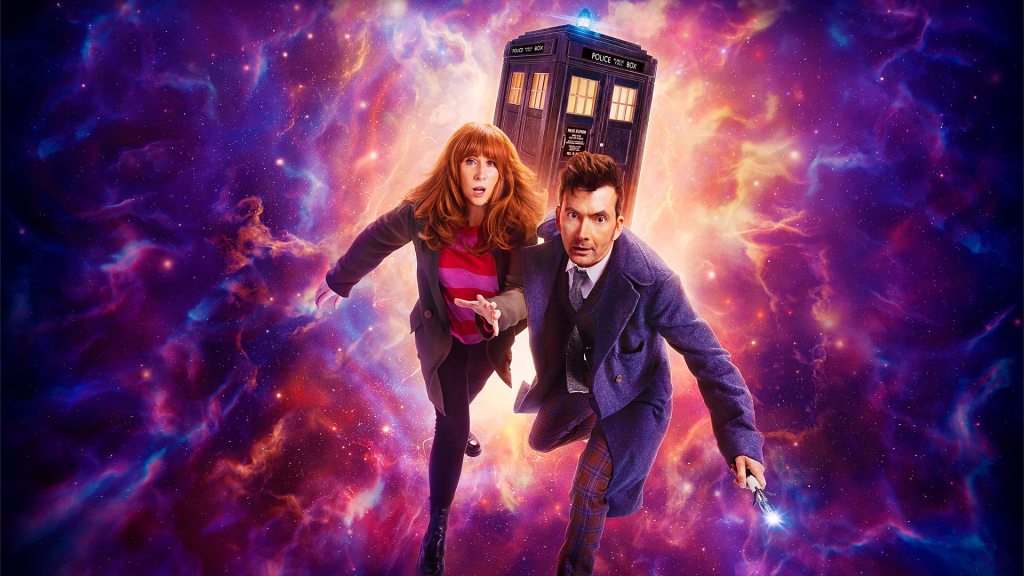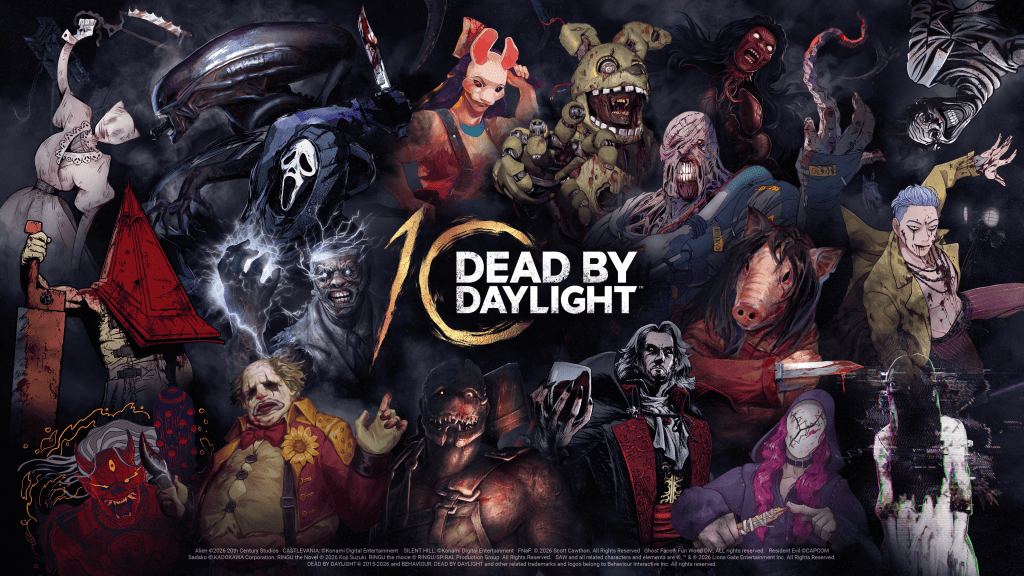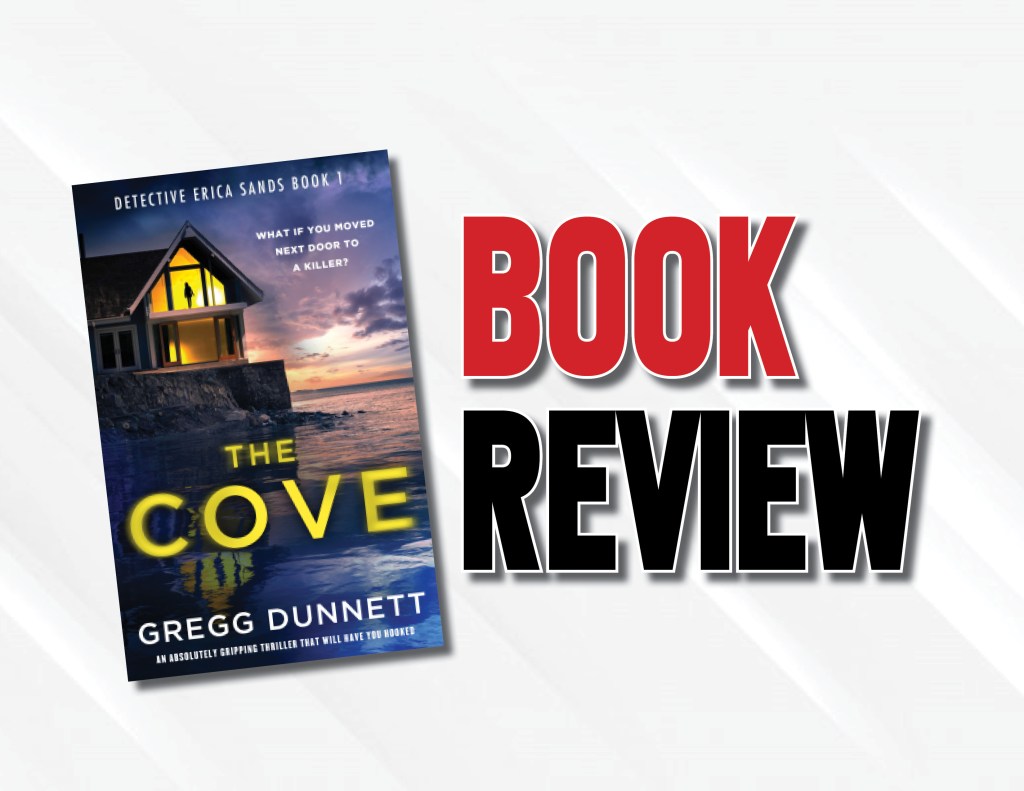I think “Doctor Who” showrunner Chris Chibnall and 13th Doctor actress Jodie Whittaker ended on a strong note in “The Power of the Doctor,” and I think the pair had some decent episodes here and there. But it doesn’t change the fact that their run overall was a boring slog that saw many fans — myself included — skip over much of the 13th Doctor’s series when it first aired.
To mend the show and get people to come back, the BBC rehired Russell T. Davies to helm three 60th anniversary specials and beyond, with David Tennant reprising his role as the Doctor for said specials.
It’s important to note that this isn’t just the 10th Doctor returning — Tennant officially plays the official 14th iteration of the Time Lord (at least the 14th numbered version … the War Doctor, Fugitive Doctor and the “Timeless Children” arc have completely convoluted how many Doctors there have been strictly numerically). But the show openly admits that the Doctor is revisiting a familiar face, and there is a reason for it, just like there was for the 12th Doctor taking the face of Lobus Caecilius of Pompeii, which the show admits initially has something to do with past companion Donna Noble (Catherine Tate).

The Star Beast
The first special sees the 14th Doctor immediately run into Donna, who can’t remember who he is due to her taking in his memories in a previous episode in the 10th Doctor’s run. 14 gets inextricably pushed into Donna and the Nobles’ life when they come into contact with a cuddly alien named the Meep (Miriam Margolyes), who is being hunted by buglike aliens.
Since the Doctor left Donna, she got married to Shaun Temple (Karl Collins) and had a transgender daughter named Rose (Yasmin Finney), who has an online crafts business and who eventually hides the Meep. Knowing of 14’s danger to Donna, her mother, Sylvia (Jacqueline King), tries to shoo him away to no avail.
This is a simple, fun story with a liar revealed twist that I actually liked (I rarely do), though I can see why some might not, as it prevents the Meep from obtaining “Baby Yoda” status as an easily merchandisable character.
Unfortunately Donna’s dad, the excellent Wilfred Mott (Bernard Cribbins) is absent from this special and is largely absent from the specials as a whole, appearing only briefly at the end of “Wild Blue Yonder.”
I do think it was pretty lazy how the special resolved the metacrisis (what Donna absorbed that gave her the Doctor’s memories), but I don’t know what else the show would do, other than allow it to kill her (which would be a very Steven Moffat thing to do).
With that being said, while it is better than 75 percent of Whittaker/Chibnall’s run of “Doctor Who,” it’s just average when compared to the Davies/Moffat eras. Still, if you skipped 13’s run, this is a great place to jump in.
“Doctor Who: The Star Beast” gets a 7/10

Wild Blue Yonder
After the events of “The Star Beast,” Donna spills coffee on the Tardis console, which prompts it to transport them to a ship at the edge of the universe. They are so beyond anywhere the Doctor has traveled, starlight hasn’t even reached them yet.
However, the two soon realize they are not alone when, after putting the Tardis into a sort of repair mode, the time machine runs away, sensing danger.
They find an old robot and shapeshifters who mimic them, but imperfectly (they often get the arms wrong). More than that, they can also copy their thoughts, meaning that with enough time exposed to the creatures, they’ll be able to copy them perfectly.
This makes for a beautifully introspective episode where the focus is primarily on the Doctor and Donna. Recent “Doctor Who” — primarily Chibnall’s Tardis — have been overcrowded and underdeveloped and because of that, “Wild Blue Yonder” comes as a welcome surprise. Between bouts of almost getting killed by the copycat aliens, Donna has serious conversations about the trauma the Doctor has gone through, such as through losing people and the aftermath of the Flux, and how that, perhaps he chose to revisit the 10th Doctor’s face because he’s running on fumes.
“Wild Blue Yonder” represents a beautiful return to form for the show thanks to its excellent script and great execution from Tennant and Tate. It also gives us the only appearance of Wilfred, a fan favorite, who introduces to the next special’s crisis …
“Doctor Who: Wild Blue Yonder” gets an 8/10

The Giggle
After “Wild Blue Yonder,” the Doctor and Donna return to Earth to find it in chaos, as everyone is fighting because they think they are right.
Both get escorted to UNIT by its chief, Kate Lethbridge-Stewart (Jemma Redgrave), who has recruited past companion Melanie Bush (Bonnie Langford), which continues a trend set by Chibnall, who saw past companions Ace and Tegan Jovanka hired by UNIT in “The Power of the Doctor.”
Behind the madness is the Celestial Toymaker (Neil Patrick Harris), a First Doctor villain that hasn’t shown up since his first story in the 1960s. He’s apparently hijacked an early televised clip (a laughing Stooky Bill puppet head) that lives in every screen to drive everyone crazy, with a special armband — and travel in the Tardis — being the only thing that can negate it.
The Toymaker exists in a realm below reality and has recently broken into it. As such, he’s able to bend the laws of physics, with only the laws of play (or games) being applicable. Beat the Toymaker, and he can grant any wish, but if you lose, he will torture you for all of eternity.
Harris brings a wonderfully chaotic energy to the role, with his character switching between British and German accents depending on his mood. He poses a real threat to the Doctor, who looks down on him for thinking so small. The Toymaker is much like the Joker in the regards that he’s an anarchic force who has no real endgame, other than having fun destroying peoples’ lives.
Being the last of 14’s run, this is also the first episode we meet the 15th Doctor (Ncuti Gatwa), who immediately steals the show when he (spoilers) bigenerates from 14, which allow the two Doctors to exist at the same time. 15 is sassy, confident and sharp and he’s able to talk about his trauma in a calm, constructive way and plays an important role in convincing 14 to take a break and settle down for a bit.
“The Giggle” has an excellent script, the best “Doctor Who” villain since at least Moffat’s run and manages to close out 14’s arc wonderfully while getting us excited for 15.
“Doctor Who: The Giggle” gets a 9/10
Overall thoughts
While the 60th specials do not attempt to be a celebration of the show like the 50th was, it proves that the show was right to go back to tried and true in Tennant, Tate and Davies. I am really happy that Chibnall did not helm these — Davies immediately brought a competence back that the show was lacking, complete with well-written character arcs and an acute focus on small but meaningful character interactions that helped me get reinvested into the show.
If you think you need to watch Whittaker/Chibnall’s run to get caught up to the show, don’t. These specials are a perfect point to jump back into it — Chibnall’s stories have a very unique quality of taking up a lot of screen time but not saying anything profound or improving the lore of the Doctor in a meaningful way. They are simply a waste of time and are summarized well enough in these specials for you to get the gist of what happened to the Doctor.
I’m optimistic that Gatwa can keep the momentum going and build off of the good will earned by these specials. With the little I’ve already seen of him, I’m impressed.
The “Doctor Who” 60th anniversary specials get an 8.5/10






Leave a comment